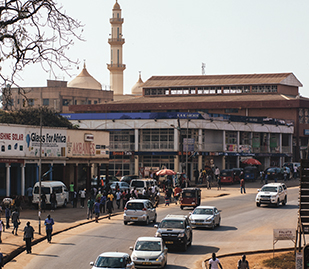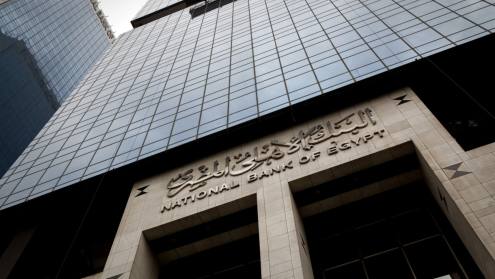Malawi’s economy expanded at a slightly disappointing 4% in 2018 but the country’s central bank predicts it will surge by up to 7% annually during the next few years, on the back of improved electricity generation, better irrigation infrastructure and greater access to finance.
The small, landlocked south-eastern African country – with an estimated population of 20.3 million – is the world’s third poorest nation, with a total gross domestic product (GDP) of only $7.3bn, according to the International Monetary Fund (IMF). Average income is just K278,000 ($384) a year.
The economy has rebounded in the past two years, following droughts in 2015 and 2016. Economic growth also picked up from 2.3% in 2016 to the estimated 4% in 2018, with improved agricultural production behind this uptick. Inflation has been reduced to 9.2% – from 21.7% in 2016 and 21.8% in 2015 – owing to the stabilisation of food prices, prudent fiscal and monetary policies and a stable exchange rate. The current account deficit narrowed to 10% of GDP in 2018, from 13.6% in 2016, following lower maize imports and higher prices for some exports.
Confident ambitions
“Malawi is categorised as one of the world’s poorest countries,” says Goodall Gondwe, the country’s finance minister (who, at the age of 82, is one of the oldest people in the world to hold such an office). “It is my goal to get us out of this grouping.
“If we had not had such calamitous weather conditions over the past few years, we would have escaped from this category sooner. However, during the next two to three years we should achieve it. We will not have an economy as big as Zambia’s but we should certainly be bigger than Burkina Faso, Burundi, or Niger. Income per head should surpass that of Mozambique.
“I think we are a ‘green country’ in the sense that we have many fresh and exciting opportunities for investors. We can offer them internal rates of return north of 25%. That should be very attractive to them. Labour is also very cheap here. Furthermore, we have a good tax system, which the British authorities and the IMF helped us to put in place.”
The Reserve Bank of Malawi (RBM), the country’s central bank, says that foreign exchange reserves remain adequate at about $780m. For more than two years, the import cover – the number of months of imports that can be covered with foreign exchange reserves – has remained stable at more than the three-month level (the country’s total import bill amounts to about $220m a month).
The strong exchange reserves have helped to keep the exchange rate steady during the past few years at about K735 to the US dollar. The central bank says that with a good rainfall season in 2019, it expects more foreign exchange coming from the sale of tobacco, the country’s main cash crop, and that the exchange rate should continue to remain stable.
“Monetary policy will continue to focus on entrenching disinflation,” says Dalitso Kabambe, governor of RBM. “It will aim to maintain inflation in the single digits and preserve stability over the medium term, while keeping real interest rates positive.”
Upward growth predicted
The central bank forecasts economic growth of 4.5% for 2019, rising to 6% in 2020 and 7% in 2021. It says that one of the country’s main challenges has been its traditional dependence on international aid, which is estimated at about $1bn a year.
“If we had never received all this international aid for many decades, we would probably be more self-reliant by now,” says Mr Gondwe. “However, of course, we would have had some problems over the years. International donors and multi-laterals do not only provide money, they also help to discipline governments and provide ideas. For example, the IMF has been very useful for us. British aid has been about as perfect as aid can be; the UK has helped us to sort out many fiscal issues, for example.”
In September 2013, a major scandal involving the country’s public finance management system, known as ‘cashgate’, led six international development partners to suspend their aid to Malawi. Some $50m of public funds were stolen through illegal access to the national payment system.
The repercussions included a huge public outcry, the arrest of a number of government officials, and the dissolution of the country’s cabinet (Joyce Banda was the country’s president at the time). The fiscal situation deteriorated rapidly, with a significant negative impact on private sector confidence and on Malawi’s international reputation.
“The withdrawal of donor aid affects services delivery and has serious implications on domestic and external debt, which complicates both fiscal and monetary policy,” says Mr Kabambe.
Since the scandal, more than 10,000 public servants have submitted detailed declarations of their assets. A payroll audit led to many improvements in the wage bill, which was full of errors.
Rural challenges
Malawi has a mostly agrarian economy. About 87% of Malawian households are engaged in agricultural production, which rises to 94% in rural areas, according to World Bank. The country’s high dependence on rain-fed agriculture contributes to a volatile agricultural performance, as extended dry spells lead to the failure of major staple crops, such as maize. This in turns exacerbates rural poverty.
“The country also frequently suffers from terms of trade shocks and that is a feature that many African countries must contend with,” says Mr Kabambe. “For example, when crude oil prices rise and the price of our exports, such as tobacco, collapse, the pass-through to the domestic economy is too high and the shocks take relatively long to dissipate.”
A lack of electricity has become one of the biggest hurdles to the private sector in Malawi. About 90% of Malawians do not have access to the grid (mostly those living in rural areas). However, for the remaining 10% – who typically live in cities – recurring power outages have become a curse. The country has current capacity to generate only 370 megawatts of electricity, a little more than a single Scottish wind farm.
Fiscal woes
Meanwhile, one of the country’s biggest recurrent problems has been governments running a large fiscal deficit. The IMF estimates the government’s overall fiscal deficit at -8.4% for the financial year from July 1, 2017 to June 30, 2018. However, it forecasts that the deficit has dropped to -4% during the current financial year.
It estimates the country’s primary deficit at -4% for the 2017 to 2018 financial year but forecasts it has dropped to zero for the current financial year. The decision by Congress to limit the amount of credit that RBM can provide the government to 10% of the previous year’s tax collection has started to provide some fiscal discipline, according to the IMF.
“Weak governance and institutions contribute to Malawi’s poor development performance,” says Greg Toulmin, the World Bank’s country manager for Malawi.
A recent World Bank report notes: “The country’s stagnation is in large part driven by a stable but low-level equilibrium, in which a small group of elites compete for power and political survival through rent seeking. The competitive-clientelist political settlement creates strong incentives for policies that can be seen to address short-term popular needs – such as agriculture subsidies, market and price distortions – while undermining the ability to credibly commit to fiscal discipline and long-term reforms needed to spur productive structural transformation.”












